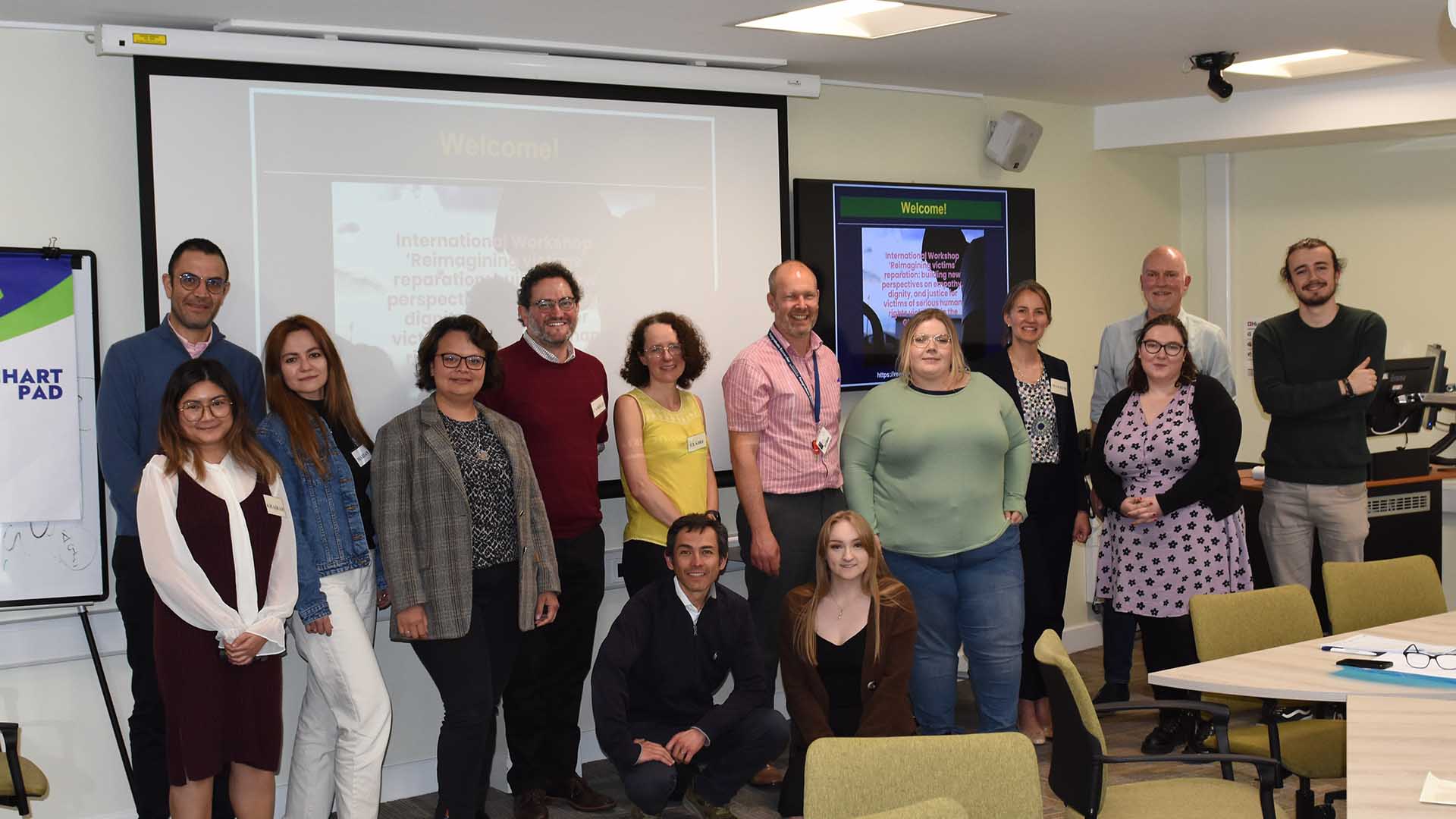Finding innovative new ways of achieving reparations for victims of human rights abuses was at the heart of a prestigious two-day international workshop recently hosted by the University of Huddersfield.
Academics, practitioners, and activists from Europe, the USA, Central and South America attended the International Workshop Reimagining victims' reparation: building new perspectives on empathy, dignity, and justice for victims of serious human rights violations in the Global South in the Charles Sikes Building. This event brought together representatives from different universities and NGOs including Harvard University (USA), the University of York (UK), the University of Baja California (Mexico), Université catholique de Louvain - UCLouvain (Belgium), the University of Liverpool (UK), Amnesty International and Save the Children International to name a few.
Through this workshop, participants provided original comparative research exploring how the concepts of human dignity, transitional and transformative justice, empathy and recognition can create novel perspectives to assist the dignification of victims of serious human rights violations in the Global South.
The event had a truly global perspective, with case studies of Colombia, Iraq, Kenya, Mexico, and Tunisia. Keynote speakers included Nicolette Waldman of Amnesty International, Dr Donna Hicks from Harvard University's Weatherhead Centre for International Affairs, Professor Paul Gready, Director of the Centre for Applied Human Rights at the University of York, Professor Valérie Rosoux, Director of research of the National Fund for Scientific Research (Fonds de la Recherche Scientifique—FNRS) in Belgium, and Zulia Orozco Reynoso, Senior Researcher at the University of Baja California in Mexico.
Matthew Snell, (pictured above on the right, alongside Dr Camilo Gomez from University of Huddersfield and Dr Sandra M Rios Oyola) one of the workshop organisers, expressed that, "As a result of gathering academics and activists concerned with victims' reparation, this workshop created a forum to explore both the institutional responses based on international humanitarian law, human rights law, transitional and transformative justice, as well as grassroots initiatives that different groups of victims' activists and human rights defenders have implemented on different countries."
The timing of this workshop is apt, with conflict, persecution and marginalisation as rife today as at any point in history, and inequalities on the rise in many countries. The main aim of this international workshop was to reimagine victims' reparation from novel perspectives in order to contribute to the development of more critical reparatory theories and practices, which have victims' needs, initiatives, and expectations at the centre of the process.

Sandra Rios Oyola from University College Roosevelt in The Netherlands, and another workshop organiser, highlighted that, "Traditionally, victims have had little influence or involvement in state-led reparative processes, participating as instruments of those processes rather than on their own terms.
"Rather than being driven by victims, reparation is a consequence of global neoliberal governance, driven by complicated international bureaucracy and developing systems that themselves create many of the needs that victims articulate. For this reason, there is a need to reimagining victims' reparation viewing victims as 'objects' of reparation rather than 'subjects' with their own agency, organisational capability and initiatives."
The event was supported by the International Collaboration Fund, a fund created by the University to support research partnerships with a highly ranked institution. This fund is supporting a wide range of activities and interventions, encouraging researchers at the university to create sustainable relationships with other academic centres overseas.






